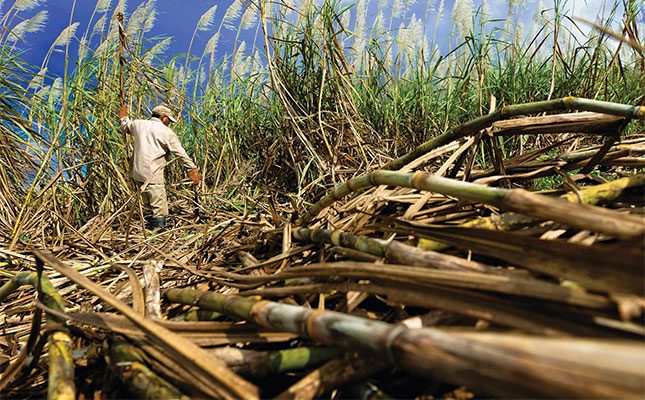
Farmers recorded their highest yield in eight years, with the South African Canegrowers’ Association (SA Canegrowers) reporting an expected 2025 harvest of 17,7 million tons, up from 16,47 million tons last year.
Last season was marred by low yields and a shortened milling period, compounding challenges from unrest in 2021, flooding in 2022, and business rescue proceedings at Tongaat Hulett and Gledhow Sugar Company.
“The weather conditions play a major role in how successful we are, and the past summer was a particularly good one,” Pratish Sharma, SA Canegrowers board member and chairperson of the Maidstone Local Grower Council, told Farmer’s Weekly.
However, the industry’s optimism is being diminished by the surge of cheap, heavily subsidised sugar imports into South Africa, which undercut local producers’ revenue and threaten their financial sustainability.
“Delaying adjusting our sugar import tariff to reflect current global realities is undermining the competitiveness of local producers,” Higgins Mdluli, chairperson of SA Canegrowers, said in a statement.
“At the same time, the US tariff threatens our access to what has historically been one of our key premium export markets.”
Local sales are declining as imported sugar displaces South African product, forcing producers to export surplus volumes at a disadvantage, Mdluli added.
The US’s 30% tariff on South African exports, including sugar, which took effect on 7 August, further complicates the international trade environment.
“Unrestrained sugar imports [push local product off shelves and out of commercial production], which lowers domestic sales. This lower level of local sales forces the industry to export more sugar at a significant price disadvantage,” Mdluli explained.
The South African sugar industry, which generates around R25 billion annually and supports more than 65 000 direct and 270 000 indirect jobs, relies heavily on tariff protection to remain viable.
“We have a limited local market,” Sharma added. “We sell sugar at a price that covers the cost of production and provides a small margin. The surplus sugar needs to be exported. The industry needs tariff protection urgently, as world market prices are low and forecasts suggest they will remain low for a significant period.”
SA Canegrowers, representing over 24 000 small- and 1 200 large-scale growers, is urging government to revise import duties in line with global prices and prioritise a new trade agreement with the US to safeguard export potential.
“Delays in adjusting our own sugar import tariff and uncertainty over international trade agreements threaten jobs and economic stability in rural Mpumalanga and KwaZulu-Natal,” Mdluli said.
“We urge government to move swiftly to protect our industry and ensure sustainable livelihoods for our growers.”
Get trusted farming news from Farmers Weekly in Google Top Stories.
➕ Add Farmers Weekly to Google ✔ Takes 10 seconds · ✔ Remove anytime






